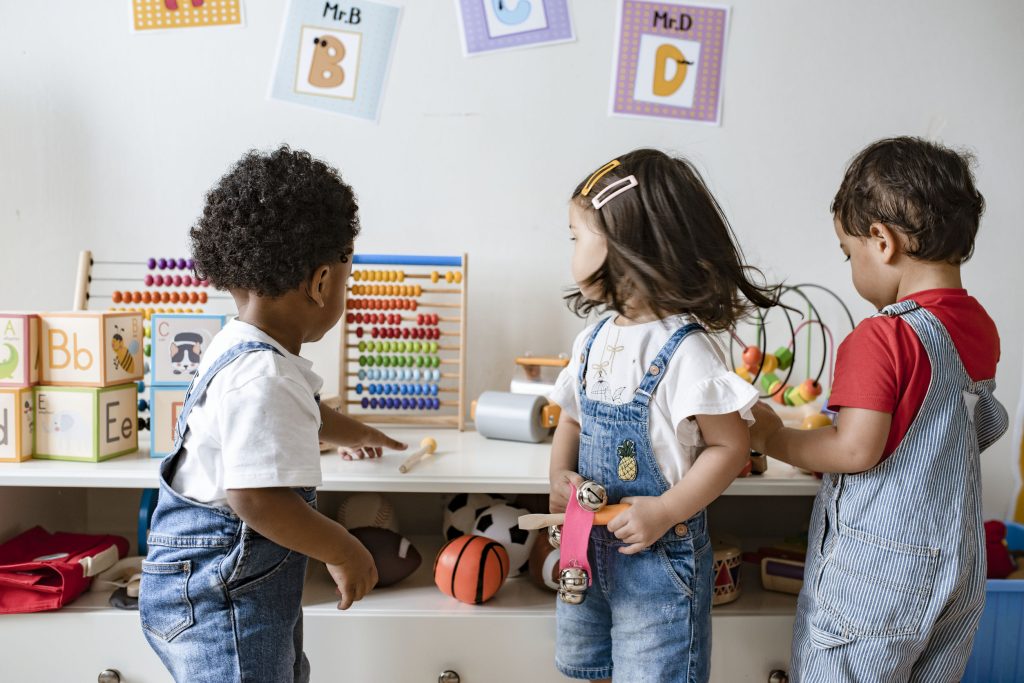How Kid’s Ministry Shapes Positive Behavior in Children
The Influence of Structured Programs
In today’s fast-paced world, where distractions are plentiful and attention spans are often short, children benefit greatly from structured environments where they can focus and thrive. Kid’s ministry programs provide such a setting, offering a unique blend of enjoyable activities and profound learning experiences. These programs gently guide children toward making ethical decisions, enhancing their moral compass, and fostering positive behavior that can last a lifetime. These ministries create a nurturing environment that molds conscientious and thoughtful individuals by incorporating responsibility, empathy, and compassion lessons. Parents and caregivers intrigued by how these programs operate and their potential impact can learn more about how these kids’ ministries’ core offerings and transformative benefits can be integrated at home.

Building Social Skills and Empathy
Social skills are the cornerstone of personal and professional success; developing these skills is essential to a child’s growth. Kid’s ministries serve as fertile ground for nurturing these abilities, as they create environments where children learn to communicate effectively, work collaboratively, and resolve conflicts amicably. Through organized activities designed to foster interchange and understanding, children not only form friendships but also develop empathy—the vital ability to understand and share the feelings of others. This learning process helps create a caring, harmonious community where children feel valued and understood. The importance of social skills and their early development is well-documented, and you can discover more about how these skills develop in early childhood.
Enhancing Self-Esteem and Confidence
Developing self-esteem and confidence is crucial for children as they navigate the complexities of life. Kid’s ministries play a pivotal role in nurturing these qualities. As children overcome challenges and receive praise from mentors and peers, they experience a significant boost in their confidence. This newfound self-assurance frequently carries over to other aspects of their lives, giving them the courage to explore new hobbies and approach challenges positively. Over time, their mentors’ and fellow participants’ appreciation and acknowledgment help solidify their sense of self, encouraging them to explore their potential and ambitions further.
Role of Mentors and Guides
The impact of mentorship within kid’s ministry programs is profound and long-lasting. Mentors serve as guides and role models who embody the values and principles the programs aim to instill. By providing support, encouragement, and wisdom, mentors help children navigate the complexities of growing up in today’s ever-changing world. Their consistent presence offers a stable and reliable source of guidance, assisting children to develop trust and a strong sense of belonging. This mentorship is essential in shaping a child’s values and worldview, fostering an environment where positive behaviors can flourish. As children look up to these mentors, they are inspired to emulate their positive traits and apply these lessons daily.
Incorporating Fun in Learning
Fun is an integral component of learning, especially in the context of children’s education. Kid’s ministries adeptly blend playful activities with educational content, ensuring the learning process remains enjoyable and impactful. Through games, creative arts, storytelling, and interactive projects, these programs teach essential life lessons engagingly and memorably. These ministries enhance knowledge retention and understanding by intertwining fun and learning while fostering a positive association with education. This approach helps children view learning as an exciting and rewarding adventure rather than a daunting task, encouraging lifelong curiosity and a love for learning.
Real-Life Examples of Behavioral Changes
Numerous stories of children whose behaviors have undergone dramatic positive transformations through participation in kid’s ministry programs. Parents and caregivers often report marked improvements in their child’s conduct, such as enhanced consideration for others, increased obedience, and heightened social awareness. These real-life examples highlight structured programs’ significant impact on young minds, showcasing the potential for positive behavioral change. Studies and experiences from trusted sources, like those provided in behavioral development successes, further validate the methodologies adopted by these programs and reinforce their place in child development initiatives.
The Importance of Community Support
The role of community support must be balanced regarding the success and effectiveness of kid’s ministry programs. A strong community provides a supportive framework that reinforces the teachings and values instilled in these programs. This cohesive environment allows for the free exchange of ideas and values, enriching the learning experience for all involved. Community involvement ensures continuity, as it extends the impact of the programs beyond their boundaries and into the children’s daily lives. By building this supportive network, the principles taught within the ministries are continuously reinforced, resulting in a more profound and lasting imprint on the participants.
Looking Forward: Developing Future Leaders
Kid’s ministries aim to shape children’s present behavior and prepare them for future leadership roles. By fostering essential leadership qualities such as integrity, honesty, resilience, and empathy, these programs lay the groundwork for nurturing successful and impactful leaders. As children grow and mature, the values and skills learned in these programs empower them to lead by example and make meaningful contributions to society. The virtues and principles nurtured within these ministries act as building blocks for compassionate and responsible leadership. Ultimately, children who have participated in kid’s ministries are well-equipped to become the future leaders their communities need, capable of guiding others with empathy, wisdom, and a solid moral compass.
Read Also: Unveiling the Tailoring Secrets of Cesare Attolini





